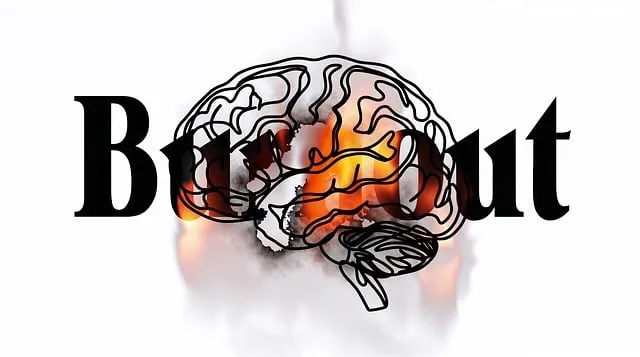Kaiser Permanente mental health services in Littleton, Colorado, offer a holistic approach to well-being through innovative programs and education. Their focus on resilience building, emotional intelligence exercises, and tailored therapy empowers individuals with coping strategies for life's challenges. These methods enhance stress management, foster positive mindsets, and improve overall mental stability within the healthcare community.
Discover the power of resilience through RFM (Recovery, Flexibility, and Mastery), a framework transforming lives at Kaiser Permanente Mental Health Services in Littleton. This article explores how targeted exercises build mental fortitude, offering practical strategies for daily training. From stress reduction to enhanced well-being, real-life success stories from Littleton demonstrate the profound impact of these resilience-building techniques.
- Kaiser Permanente Mental Health Services in Littleton
- Understanding RFM: A Framework for Resilience
- The Role of Exercises in Building Mental Fortitude
- Practical Strategies for Daily Resilience Training
- Real-Life Benefits: Success Stories from Littleton
Kaiser Permanente Mental Health Services in Littleton

Kaiser Permanente Mental Health Services in Littleton offers comprehensive support for those seeking improved mental well-being. The facility focuses on providing innovative solutions and tailored programs to address various mental health concerns, including trauma-informed care. Their expert team designs engaging mental health education programs that empower individuals with valuable skills for self-care routine development. These initiatives aim to enhance resilience and promote long-term mental health stability.
Through these services, Kaiser Permanente Littleton encourages a holistic approach to well-being. By combining specialized therapy, educational resources, and trauma support services, they foster an environment conducive to personal growth and recovery. This integrated model ensures that individuals not only receive immediate assistance but also develop the tools needed to navigate life’s challenges effectively.
Understanding RFM: A Framework for Resilience

Resilience is a key factor in maintaining good mental health, especially within demanding professions like healthcare. At Kaiser Permanente mental health Littleton, we understand that healthcare providers face unique challenges that can lead to burnout and increased stress levels. This is where Resilient Factor Method (RFM) comes into play as a powerful framework designed to enhance resilience.
RFM focuses on building mental fortitude by providing practical tools for managing stress, improving coping mechanisms, and fostering a positive mindset. By incorporating RFM exercises into their routines, healthcare providers can effectively navigate the high-pressure environments they often work in. These strategies not only contribute to burnout prevention but also enhance overall well-being, ensuring professionals in the field of mental health awareness remain dedicated and effective in their roles.
The Role of Exercises in Building Mental Fortitude

Exercises play a pivotal role in fortifying mental resilience, an aspect often overlooked yet crucial for overall well-being, especially in today’s fast-paced world. Incorporating structured activities into daily routines allows individuals to develop coping mechanisms against life’s challenges, much like Kaiser Permanente mental health services in Littleton promote active healing. These exercises serve as powerful tools to enhance mental fortitude by encouraging positive thinking and effective communication strategies.
Through regular practice, simple yet impactful exercises can teach individuals how to manage stress, a common adversary of mental resilience. By learning to navigate stressful situations with newfound clarity and composure, folks gain a sense of control over their emotional responses. This, in turn, empowers them to approach life’s hurdles head-on, fostering a mindset that embraces challenges as opportunities for growth rather than daunting obstacles.
Practical Strategies for Daily Resilience Training

Building resilience is a daily practice that can significantly contribute to improved mental wellness and overall well-being. For healthcare providers like those at Kaiser Permanente Mental Health Littleton, integrating practical strategies into their routines can be transformative. One effective method is incorporating emotional intelligence (EI) exercises, such as mindful meditation or self-reflection practices, which help individuals become more attuned to their emotions and enhance their ability to manage stress.
Daily journaling has emerged as a powerful tool for cultivating resilience. Through Mental Wellness Journaling Exercise Guidance, individuals can process their experiences, track moods, and identify patterns. This practice encourages self-awareness, emotional regulation, and offers a safe space to explore thoughts. Additionally, setting small achievable goals and engaging in regular physical activity are essential burnout prevention strategies for healthcare providers. These simple yet effective tactics contribute to building mental resilience, fostering better coping mechanisms, and promoting overall health within the healthcare community.
Real-Life Benefits: Success Stories from Littleton

In the heart of Littleton, Colorado, Kaiser Permanente mental health services have been transforming lives through innovative resilience-building exercises. These programs, designed with a focus on Emotional Intelligence and Mental Health Education Programs, have cultivated a supportive environment that nurtures both mind and spirit. The success stories from this community are a testament to the power of these initiatives.
Littleton residents have shared their journeys of self-discovery and healing through various activities that promote cultural sensitivity in mental healthcare practice. By engaging in these exercises, individuals have not only enhanced their coping mechanisms but also built stronger connections with their communities. The real-life benefits are evident—from improved emotional regulation to increased resilience against life’s challenges. These experiences showcase how dedicated efforts in mental health education can lead to profound positive changes, setting a standard for holistic well-being that extends far beyond the walls of healthcare facilities.
Resilience is a powerful tool that empowers individuals to navigate life’s challenges with strength and adaptability. As demonstrated by the success stories from Kaiser Permanente Mental Health Services in Littleton, integrating RFM (Resilience, Flexibility, and Mastery) into daily routines fosters mental fortitude. Through targeted exercises and practical strategies, anyone can build resilience, enhancing their ability to overcome obstacles and thrive in even the most demanding circumstances. By embracing these principles, individuals can transform their lives, just as those in Littleton have experienced, fostering a more robust and resilient mindset.






